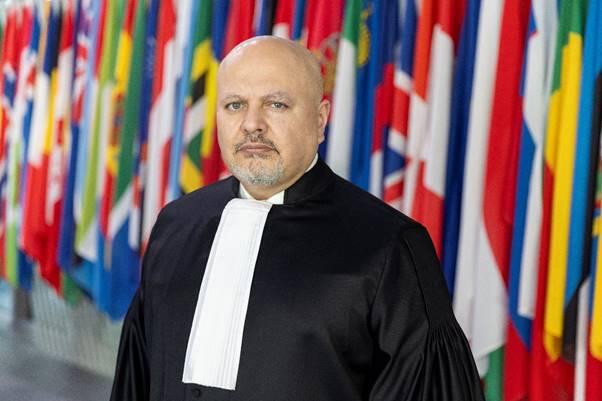Statement of ICC Prosecutor on arrest and extradition of suspects in relation to crimes against victims of trafficking in Libya.
I
welcome the recent arrests in Ethiopia and the extradition to Italy and
the Netherlands of two key suspects of crimes
against victims of human trafficking and human smuggling in Libya. I am
pleased to note that my Office has supported the collective effort to
make this operation a success and to hold those responsible to account.
On 5 October, a 38-year-old man of Eritrean nationality was extradited from Ethiopia to the Netherlands after years
of investigations by the Dutch Public Prosecution Service and the Royal Netherlands Marechaussee. On 12 October, Mr Gebremedhin
Temesghen Ghebru, a 35-year-old man from Eritrea, was
extradited from Ethiopia to Italy following efforts by the Polizia di Stato and
the Palermo Prosecutor’s Office. Both suspects were allegedly involved
in smuggling of persons from Africa to Europe. In the course of the
journey, the victims were reportedly
subjected to brutal violence, including in camps located in Libya, and
suffered beatings, starvation, sexual violence, and extortion.
Following extradition, all suspects continue to be presumed innocent under the domestic laws of the states concerned
and their responsibility will be determined by independent judges of the national authorities.
The
arrest and extradition of those two suspects are of significant
importance in the work that Italy and the Netherlands
are doing to hold perpetrators accountable for crimes targeting
migrants. I commend the authorities in both countries for their
meticulous and effective investigative work as well as the Ethiopian
authorities for their decisive action. These criminal investigations
also benefitted from the support provided by the United Kingdom of
Great Britain and Northern Ireland, Europol, and Interpol, among others.
My Office has also actively assisted these investigations through the sharing of knowledge, information, evidence, and
through joint witness interviews. As
I have stated recently before the United Nations Security Council,
under the Rome Statute, crimes against migrants may constitute
crimes against humanity and war crimes.
These
recent arrests and extraditions are a clear sign that international
cooperation works. The collective effort in
these two cases is a prime example of what can be achieved when States,
agencies, and my Office join forces in pursuit of a common goal. This
is the way forward if we want to ensure that no one is above the law and
the impunity gap is narrowed.
As I noted in my last report
to the United Nations Security Council,
the Libya Situation is a priority for my Office and deepening our
cooperation with national authorities in pursuit of accountability is
one of the core principles
at the heart of the renewed strategy I outlined to the Council in April
of this year.
It is in this spirit of partnership that my Office in September became a formal member of the
Joint Team that
supports investigations into crimes against migrants and refugees in
Libya. I was delighted that we were able to take this step, further
aligning our action and resources with
others, including the authorities from Italy, the Netherlands, the
United Kingdom, Spain, as well as Europol. I wish to underline my
commitment to continue strengthening our engagement and support to our
national partners moving forward.
This message of cooperation and dynamic complementarity is one I will emphasise on my upcoming visit to Libya, building
upon the other visits by my Office this year.

